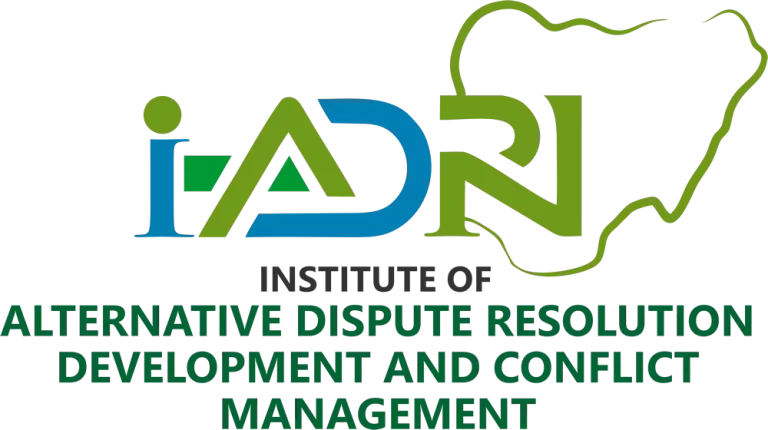Introduction
Alternative Dispute Resolution (ADR) has been gaining prominence in Nigeria, especially through its integration into the country’s formal legal system. With the establishment of the Lagos Multi-Door Courthouse (LMDC) in 2002, ADR experienced a revitalization, offering a more efficient and culturally resonant method for resolving disputes. The LMDC marked a significant milestone as Africa’s first court-connected ADR center, setting a new precedent for how legal disputes could be handled in Nigeria. The model combines indigenous methods of mediation and arbitration with modern legal practices, providing quicker, cheaper, and more amicable alternatives to litigation. This article explores the rise of ADR in Nigeria, its impact on the legal system, and its potential to improve access to justice.
The Early Days of ADR in Nigeria
ADR is not a new concept in Nigeria. Historically, many Nigerian communities practiced forms of mediation, negotiation, and arbitration long before the introduction of the formal court system by British colonizers. Traditional leaders such as kings, chiefs, and elders were often responsible for resolving conflicts within communities, focusing on reconciliation rather than punitive justice. These methods were deeply rooted in the idea of maintaining harmony and promoting long-lasting solutions to disputes.
However, the colonial era introduced a foreign legal system that prioritized litigation over traditional dispute resolution. The British courts provided a formal avenue for settling disputes, and their ability to enforce decisions through state mechanisms, such as imprisonment or asset seizure, quickly overshadowed indigenous practices. Over time, the legal system in Nigeria became dominated by litigation, with courtrooms filled with cases that could take years to resolve.
The Crisis of Litigation
The introduction of the formal legal system in Nigeria brought with it several challenges. Litigation became the primary method for resolving disputes, but as the population grew and legal cases multiplied, the courts became overwhelmed. In Lagos State alone, over 30,000 new civil cases are filed annually, leading to significant delays. It is not uncommon for cases to take anywhere from two to 20 years to be resolved, with multiple adjournments and appeals dragging out the process.
This inefficiency has had serious consequences for the Nigerian public. Many people, especially those who cannot afford the high cost of legal representation, are left without a means to resolve their disputes. Moreover, the adversarial nature of litigation, where one party “wins” and the other “loses,” often leads to dissatisfaction among disputants, straining relationships and creating further conflicts.
The Rise of Alternative Dispute Resolution
Recognizing the limitations of the court system, legal professionals and government officials in Nigeria began exploring alternative methods of resolving disputes. ADR, with its emphasis on negotiation, mediation, and arbitration, presented a viable solution. The Lagos State government took a pioneering step by establishing the Citizens’ Mediation Centre (CMC) in 1999, providing free mediation services for indigent residents. This model quickly gained traction, and by 2002, the Lagos Multi-Door Courthouse was launched.
The LMDC, inspired by the Multi-Door Courthouse model from Harvard Law School, offers various “doors” or processes for resolving disputes. These include negotiation, mediation, and arbitration, providing disputants with multiple avenues to find amicable solutions outside the traditional courtroom setting. This model is designed to complement the formal legal system, offering alternatives that reduce the burden on the courts while providing faster and more cost-effective justice.
The Impact of ADR on the Legal System
Since its establishment, the LMDC has played a pivotal role in transforming Nigeria’s legal landscape. Cases referred to the LMDC are often resolved in a fraction of the time it would take in a traditional court. During “Lagos Settlement Week,” for example, the LMDC settles a significant percentage of cases within just a few days, compared to the years it typically takes for litigation to conclude. In 2009, the LMDC resolved 45% of cases it handled during the first Lagos Settlement Week, compared to only 12.5% of cases resolved through litigation in the same period.
Beyond efficiency, ADR offers a more participatory process for disputants. In mediation, for instance, parties have greater control over the outcome of their case, as they work together to find a mutually agreeable solution. This contrasts with the rigid win-lose framework of litigation, where a judge imposes a decision that may not satisfy either party.
The success of the LMDC has inspired other states in Nigeria to adopt similar models. Today, 14 Nigerian states and the Federal Capital Territory (Abuja) have replicated the LMDC model, expanding access to ADR across the country. This shift has not only eased the burden on the courts but has also helped erode the long-standing bias towards litigation in Nigeria.
Challenges and the Future of ADR in Nigeria
Despite its successes, ADR in Nigeria still faces challenges. One major obstacle is the lack of awareness among both the public and legal professionals. Many lawyers and judges are unfamiliar with ADR processes, or they view them as threats to their core business of litigation. There is also a perception among some that opting for ADR signals weakness, as it might suggest that a disputant is unwilling to see the case through to litigation.
Moreover, not all cases are suitable for ADR. Complex legal matters that require strict interpretation of the law, or cases involving criminal activity, may still be better suited for traditional court proceedings. However, ADR is increasingly being recognized as the most appropriate method for resolving civil disputes, such as debt recovery, landlord-tenant disagreements, and employment disputes.
To continue growing, ADR needs greater institutional support. Legal education in Nigeria should place more emphasis on ADR processes, ensuring that future lawyers are well-versed in these methods. Additionally, more public awareness campaigns can help shift the mindset of Nigerians towards seeing ADR as a viable alternative to litigation.
Conclusion
The resurgence of ADR in Nigeria is a welcome development in a legal system plagued by inefficiency and backlog. The Lagos Multi-Door Courthouse has demonstrated the potential of ADR to provide faster, cheaper, and more amicable resolutions to disputes, and its success has sparked interest across the country. As more states adopt similar models and legal professionals become more familiar with ADR, Nigeria’s legal system could become more accessible and effective for all citizens. By embracing both modern and traditional methods of dispute resolution, Nigeria is charting a path towards a more balanced and inclusive approach to justice.

